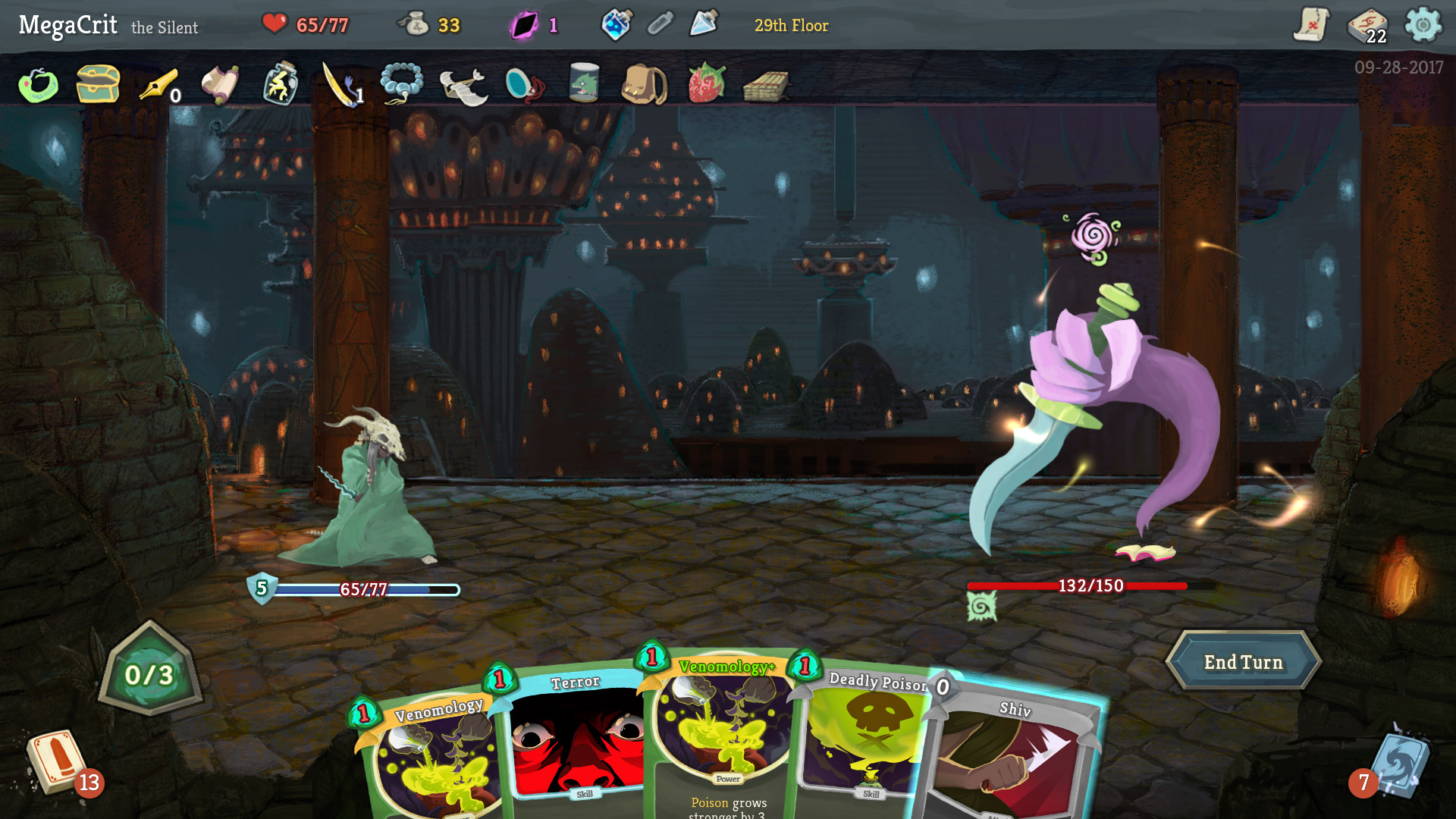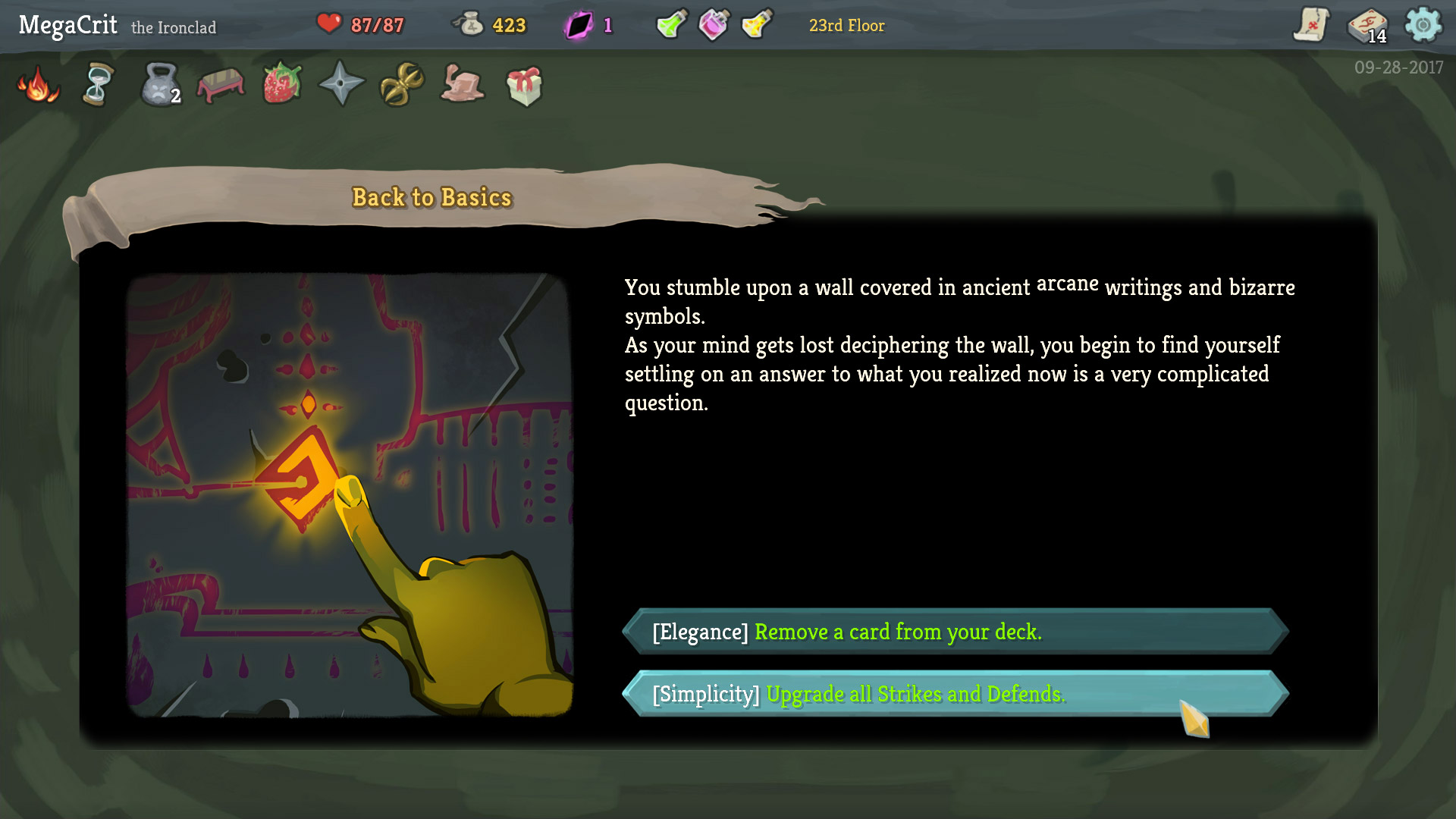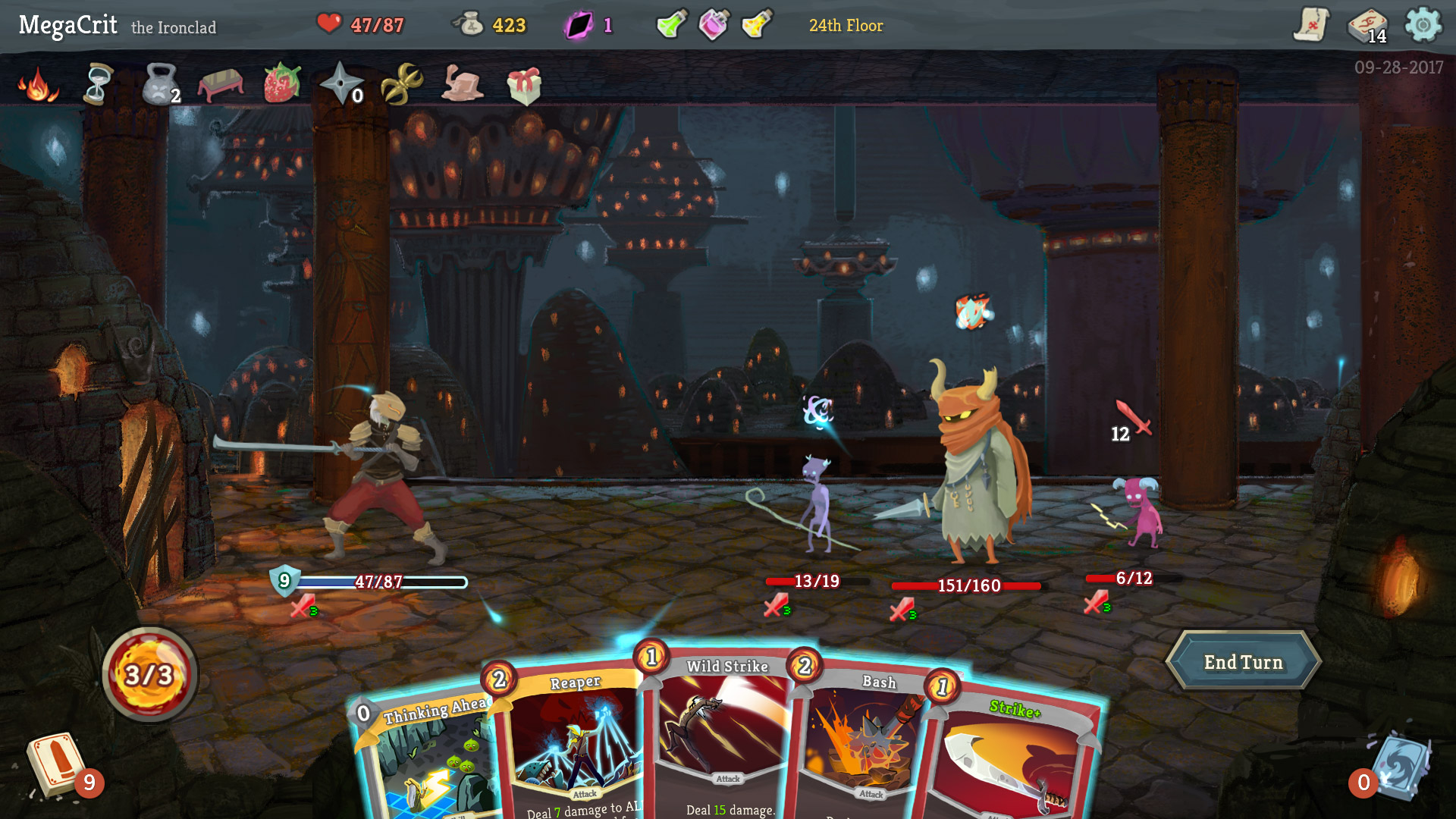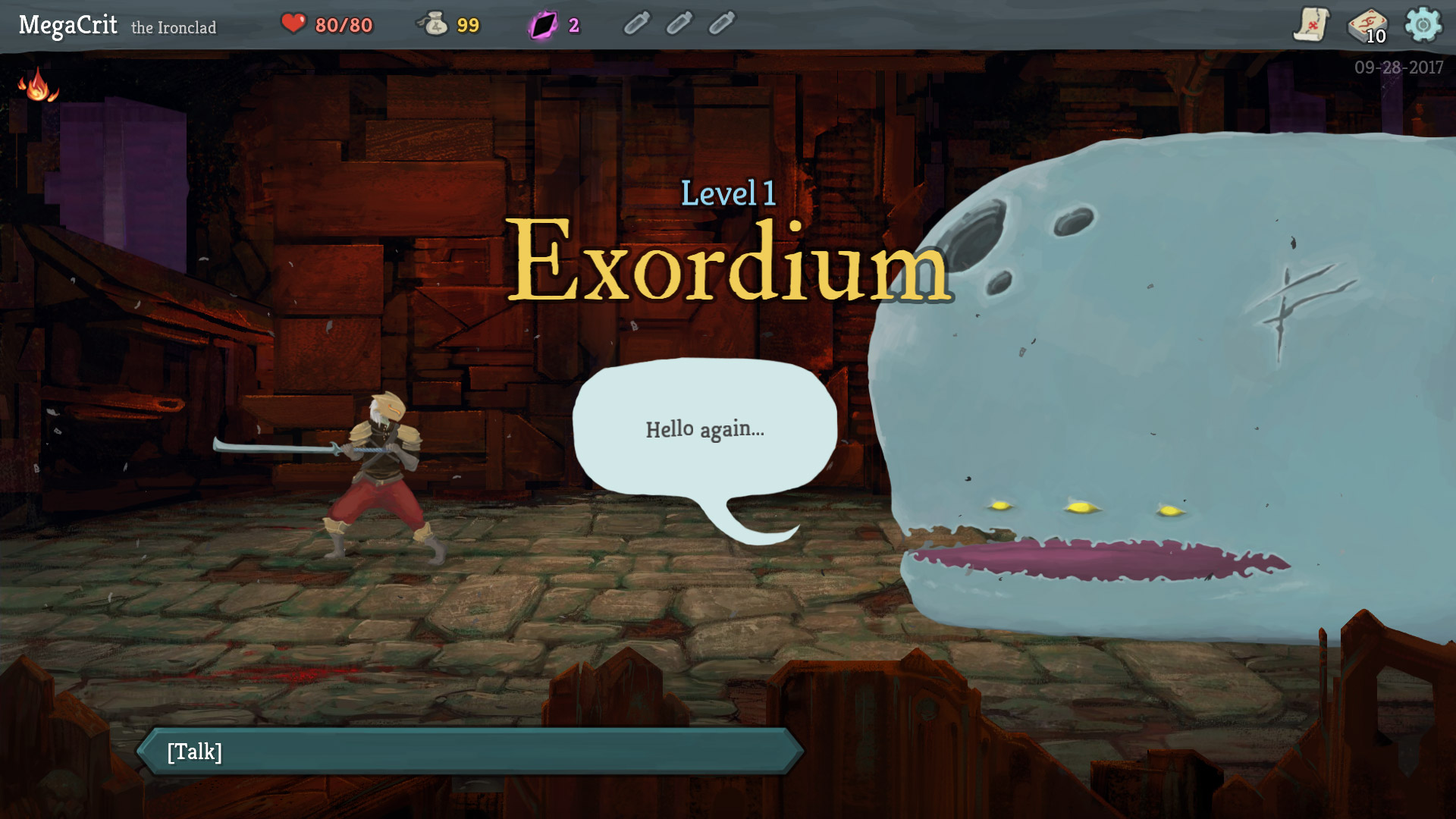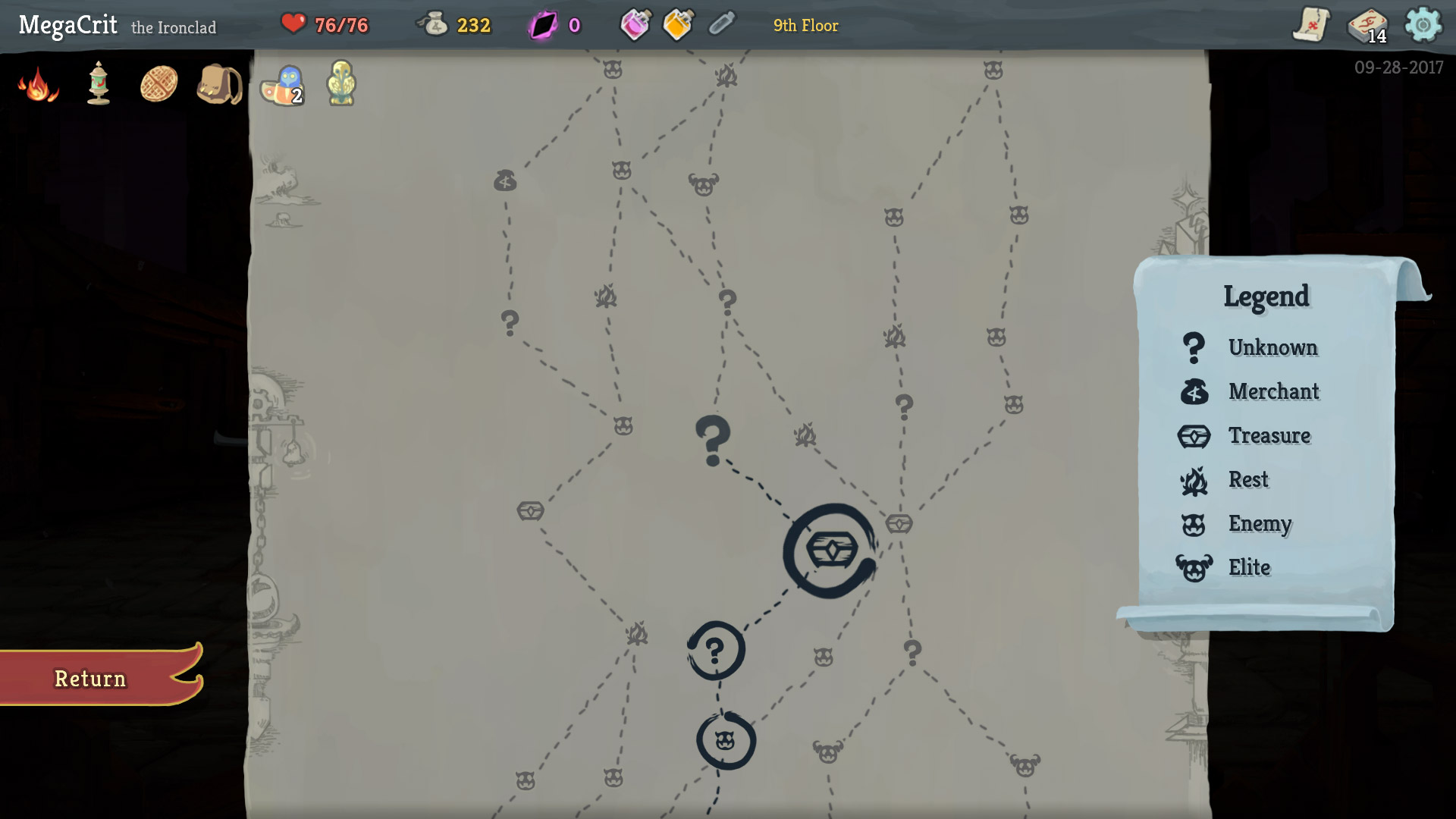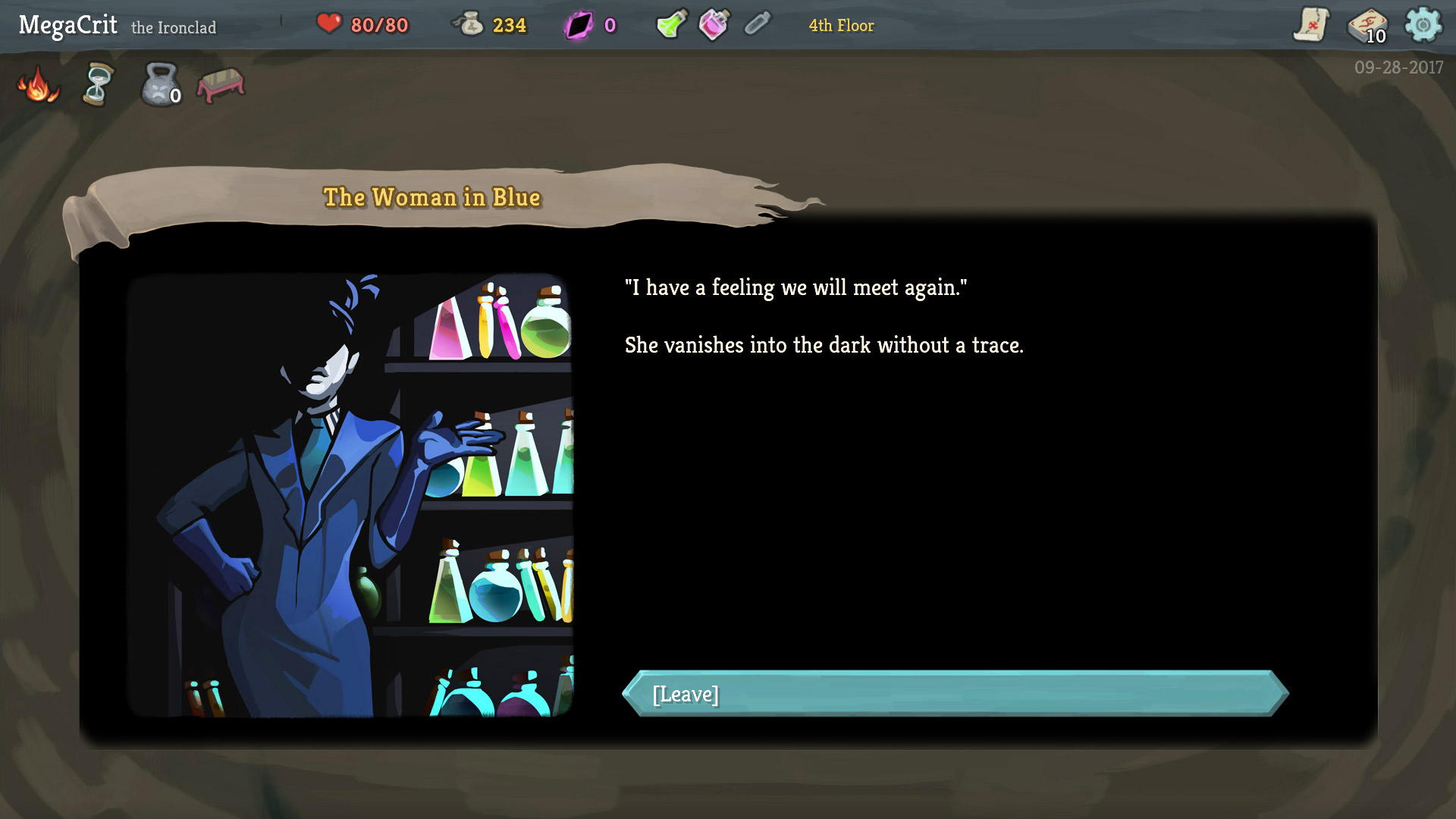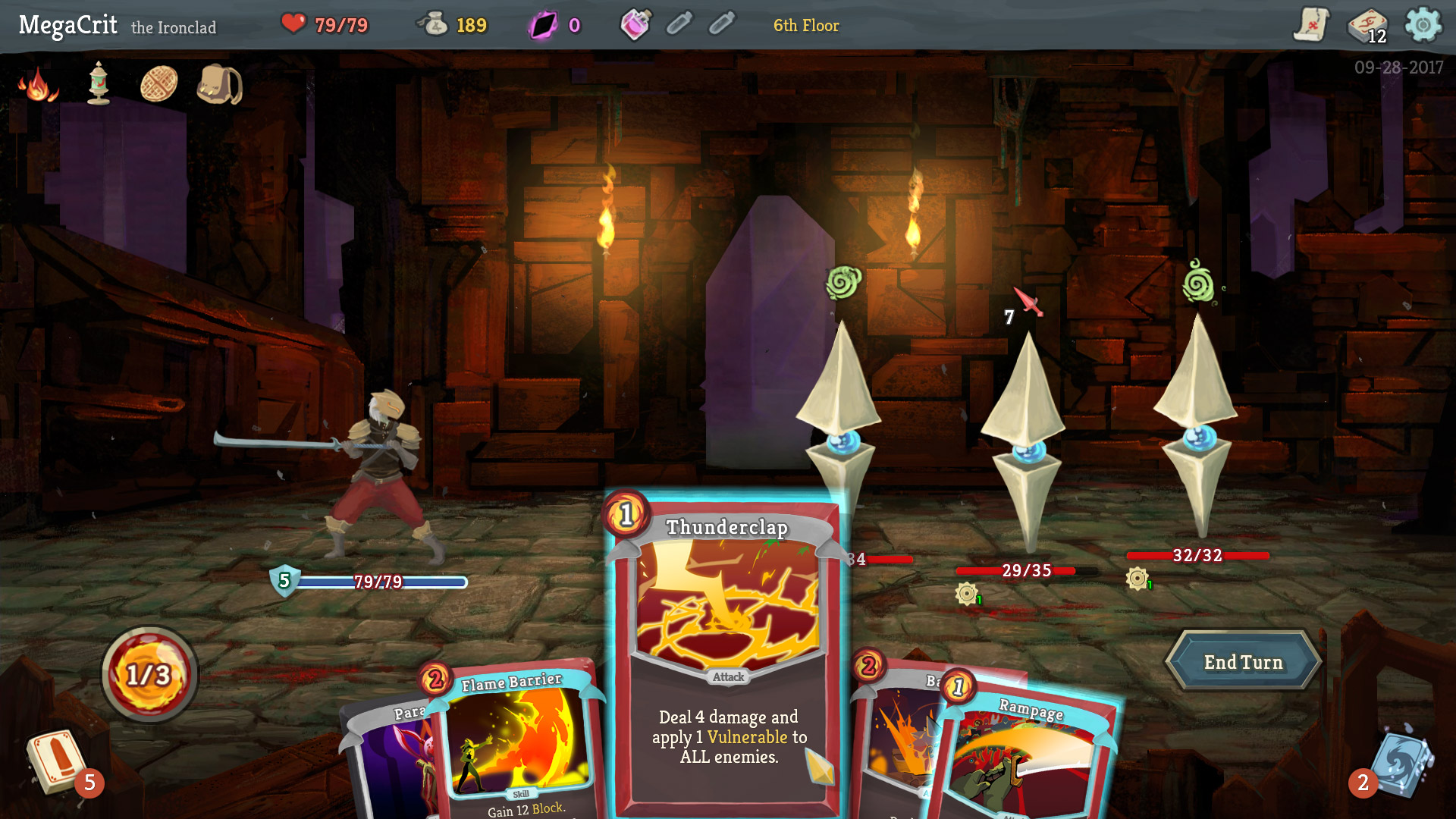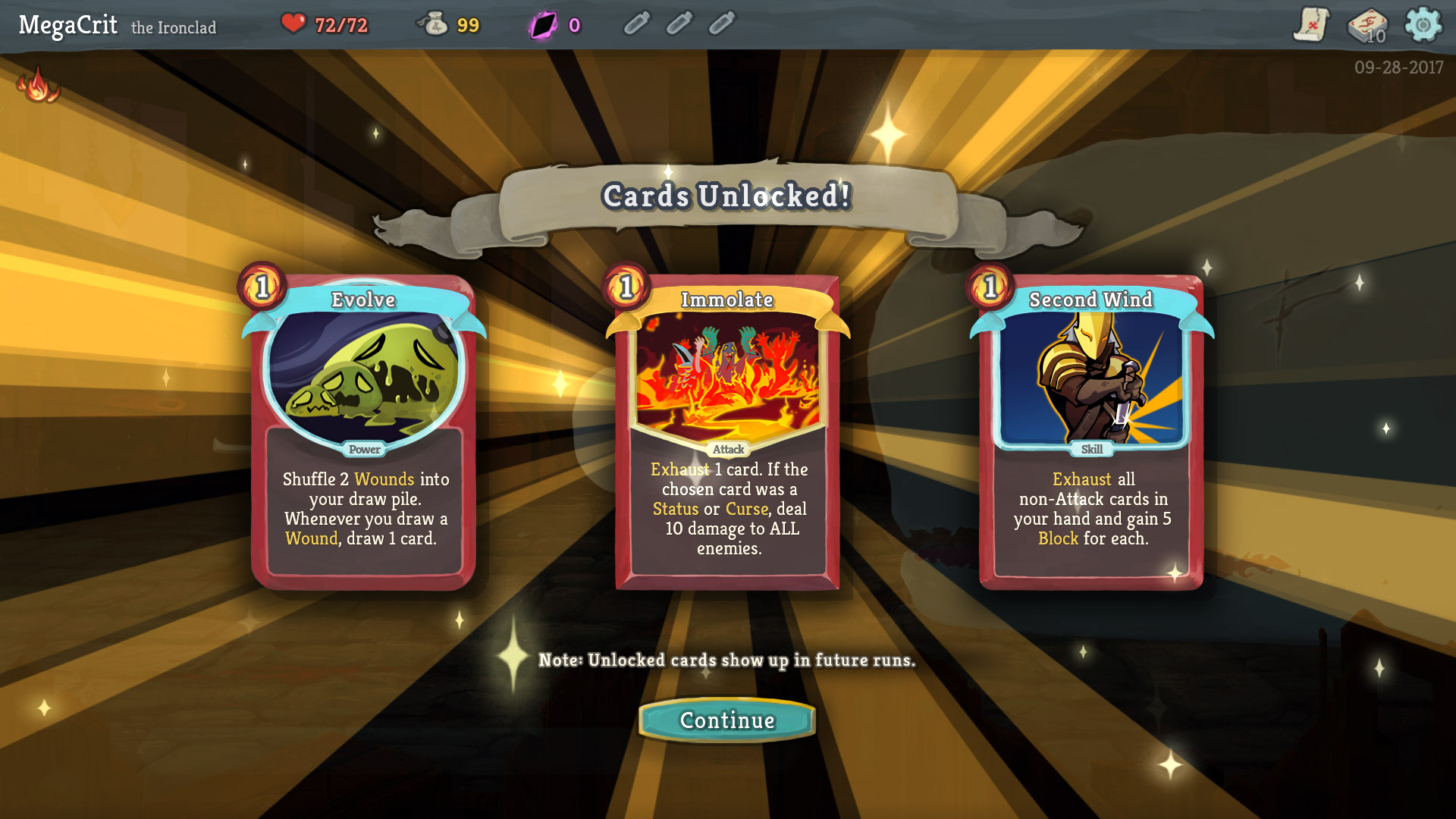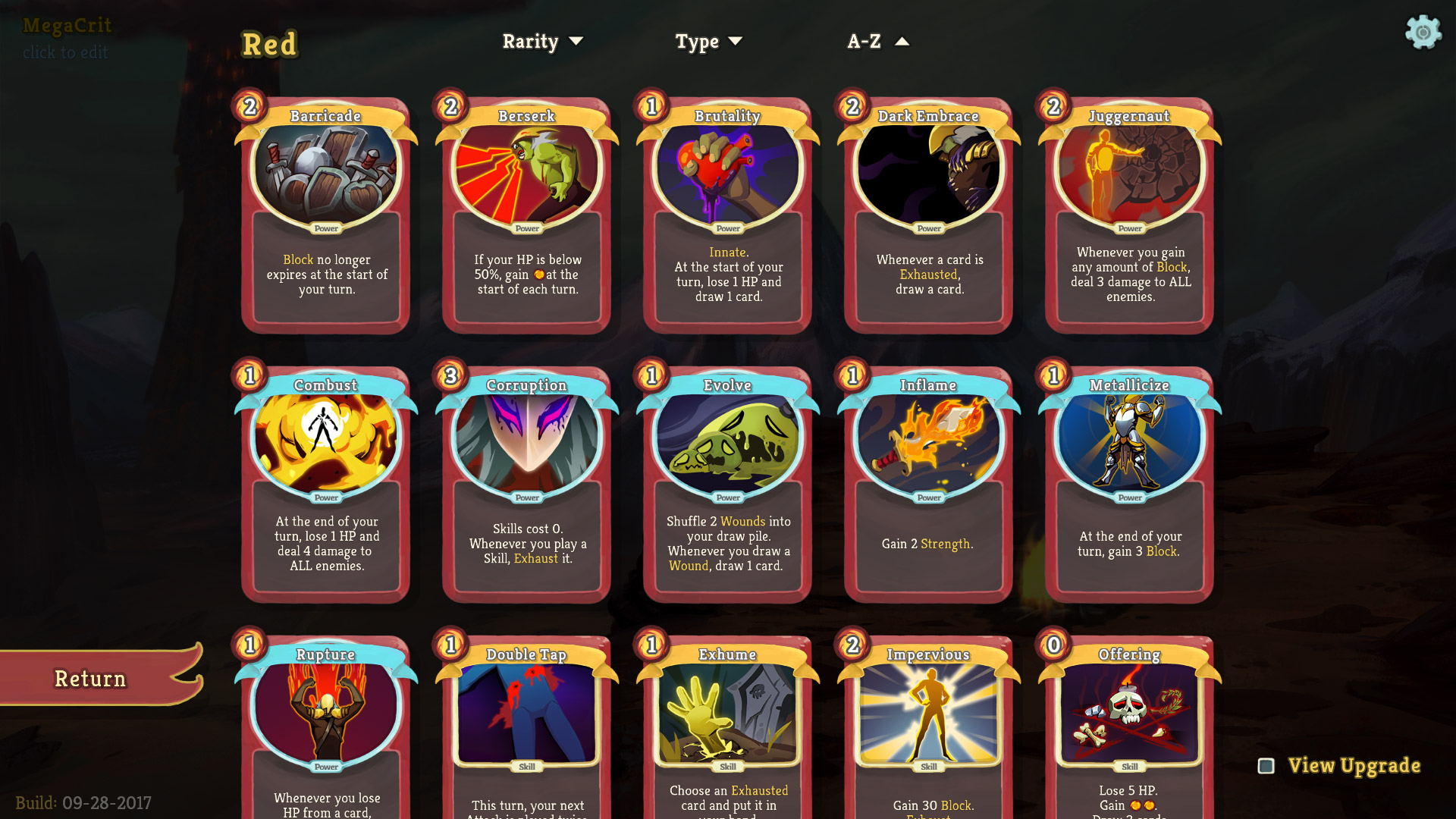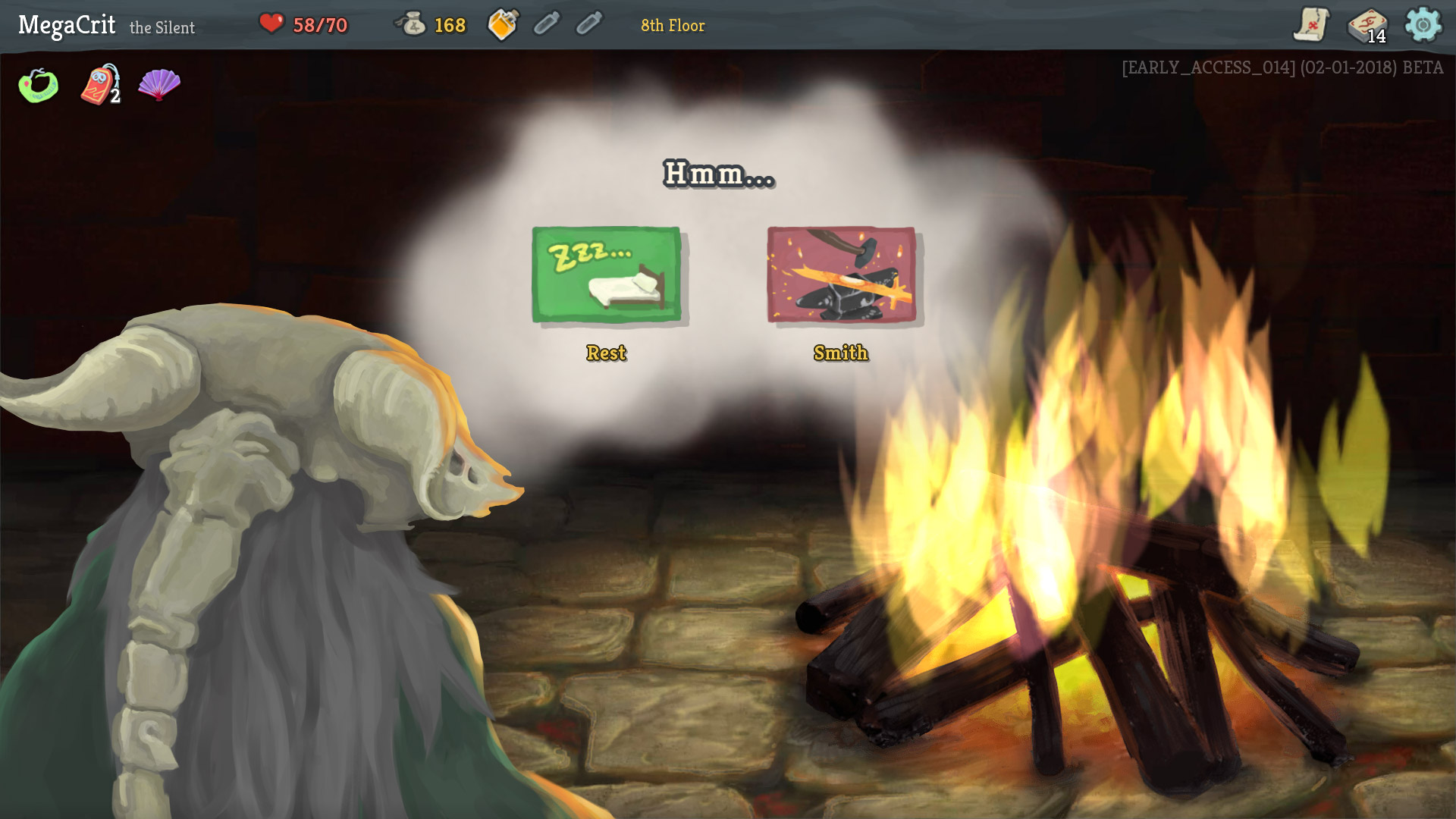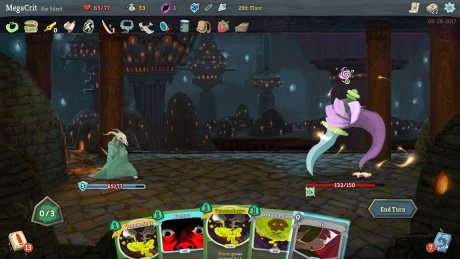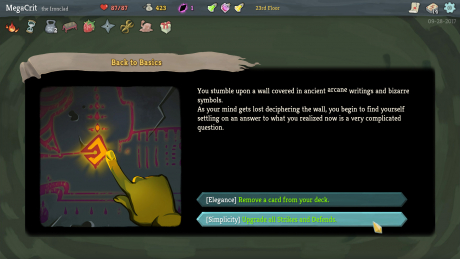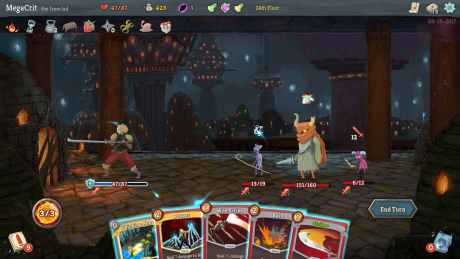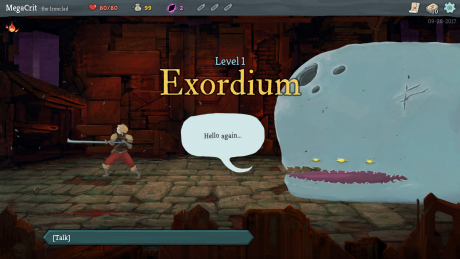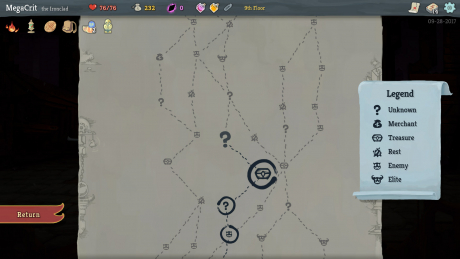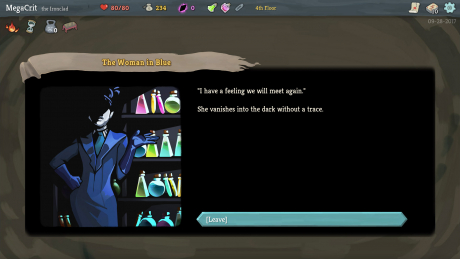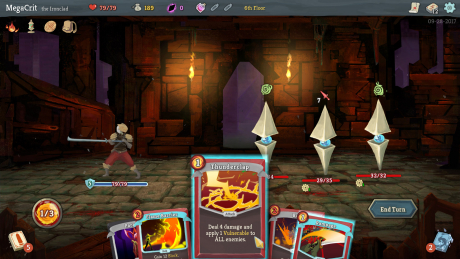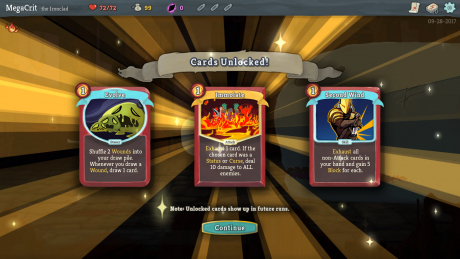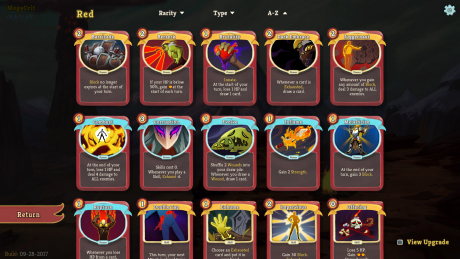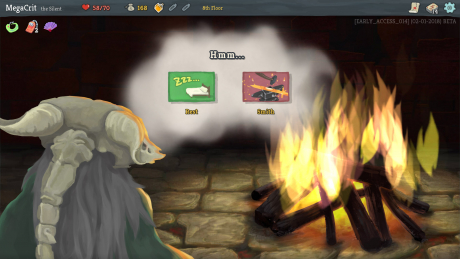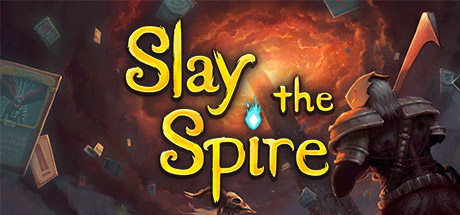Better late to the party than never showing up.
Slay the Spire is a deck-building roguelike. Similar to MTG or more accurately Hearthstone. Each turn has a limited amount of things you're able to do based on the cost of the card's activation and how much energy you have. However, beyond those antecedents, Slay the Spire is effectively the game that inspired all these other, more recent card/deck-building games.
Gameplay:
Similar to how other Roguelikes behave, you're set down a path where battles and events occur with perma-death at the ready. Though, being pedantic, death does bring XP which in turn unlocks more cards and relics that could show up during a new run, so it could be said to be a rogue-lite.
Along the way, campfires offer a place to rest and recover HP or give the choice to spend that time upgrading a single card. Upgrading generally consisting of increasing damage, altering the amount that a buff/debuff would augment or a reduction in cost of a card's activation. Previews can be seen of the affected change before committing.
The vanilla playable characters all have different styles of play.
- The Ironclad — very straightforward — warrior type.
- The Silent — uses shivs and poisons. Anecdotally, reminds me of the Plague Doctor from Darkest Dungeon. Shivs are (generally) a “free” action compounding other attacks.
- The Defect — has the most obtuse vernacular. Uses 'channeled' orbs that have passive effects that can also be 'evoked' for increased effect.
- The Watcher — [spoiler]It's a secret.[/spoiler]
There are a number of mod classes to play as in the Steam Workshop as well — this will disable achievements, however.
Cursed cards can be obtained through events that will (generally) negatively affect you. However, they also provide an easy choice for use with some other cards that require an exhaustion fee, ultimately adding to overall synergy.
https://steamcommunity.com/sharedfiles/filedetails/?id=2564445798
The game uses a lot of verbiage to quickly surmise what effects a card might have. Luckily, they can all be seen in detail by simply hovering over them. Powers differ from skill cards in that they stay on your character unless otherwise specified. They act as a sort of 'permanent' as they would in MTG, only they cannot be targeted directly. Knowing that status effects like “vulnerable” don't stack but rather extends its duration of turns the higher number shown becomes paramount to making better decisions — so as to optimize card execution order. Cards like “Flex” are defined as skill cards meaning they're temporary and go away the turn after they are activated — juxtaposed to something like “Inflame”, which is defined as a 'Power' card and therefore its effect becomes permanent for the rest of that combat.
https://steamcommunity.com/sharedfiles/filedetails/?id=2564445845
About the Defect — they've got the most obtuse vernacular used to describe their move set. As opposed to the main functions of the Ironclad and the Silent being strength and poison respectively, two easily easily understood concepts without need for further explanation. The Defect uses orbs that they channel and then evoke. Which in my estimation, it not exactly immediately understood. Channeling is the act of summoning an orb such that its passive effect can happen each turn (they float above you), whereas evoking an orb is the act of essentially 'dispersing' it from your character's orbit — performing its more active characteristic. And the types of orbs vary: Plasma, Dark, Lightning and Frost — all with different functions. I've had a few runs that did get extremely complicated in the daily run with the Defect character that effectively became nearly impossible to tell what would actually occur by making a move. I'm relatively sure this was a rare occurrence. That said, things don't typically become aggressively complicated until the third act or ascension mode is activated. A sort of intensifier — similar to Mayhem mode in Borderlands 3.
Every battle rewards loot and a choice from a random selection of cards. Of course, being a deckbuilder means there will be a meta of selecting cards that behoove you while removing cards that are less useful or get drawn too often. And it's one of these deck-building games where it occurs over the course of one run as opposed to something like MTG where you'd unlock cards, build the deck outside of combat and then enter each battle with that deck. The meta becomes more about how to compound the effects of relics with status buffs to have the best card synergy. There's also the aspect of playing cards in the right order to compound their effects as well. Such as adding strength to yourself or putting a vulnerable debuff on a specific enemy before attacking, as an example.
The game does feature daily challenges with leaderboards.
Anecdotes:
It's not my favorite theme, I'm not usually captivated by these sorts of traditional fantasy-scapes. But I do like the art-style. Though, for me personally, I'd be more into it were it sci-fi or steampunk perhaps.
There's some annoying aspects such as ranged attacks not counting as actually being ranged, specifically, when dealing with thorns (a type of status effect that causes bounce-back damage to the attacker still effects something like throwing daggers. However, channeled or evoked orbs from the Defect do not affect it.
I actually enjoy playing the Ironclad the most in this game. Normally I don't go for strait-forward warrior types in RPGs, largely because I find them a bit boring to play as. However, because of my odd approach to this game, playing a strait-forward warrior type allows me to hop in, click around and actually get something done without needing to re-read everything. The other vanilla classes are very fun, though.
Art in the city (Act 2) has these little wisps that float around and give the area a veritable otherworldly feel that I enjoy. (Reminds me of he Fungoid cities in Stellaris, with their rounded architecture.)
The Gist:
I believe the game is highly approachable by newcomers as well as people like me that play it sporadically and commonly go on long hiatuses from it. It's not the most complex game but it's very satisfying when I do boot it up. I tend to binge it.
All things considered, Slay the Spire is an odd game as... I don't actually like it very much. That might be an odd thing to say about a game that I wrote all this about and still recommend. But it's true — it scratches the card-driven tactician itch in me that used to be filled by MTG. Only Slay the Spire does it in this much faster paced, less committal fashion that I can really get behind — in certain situations. It can be too convoluted at times to be enjoyable. Often the starts of runs are slow to ramp up as well. That said, it's very addicting — I'd wait for a sale, personally.
Zitat:
If you've read this far, consider following my curation —
Station Argus